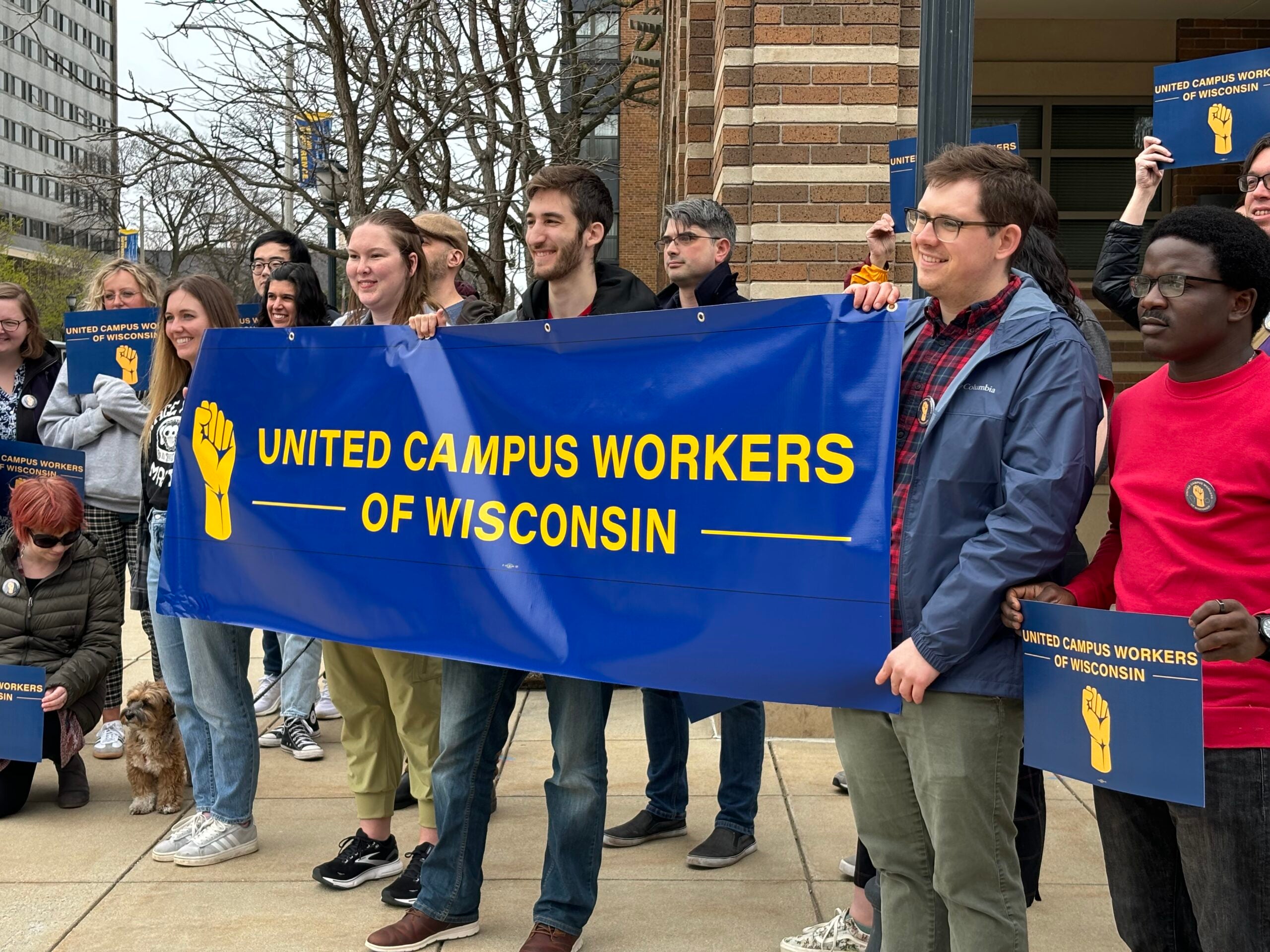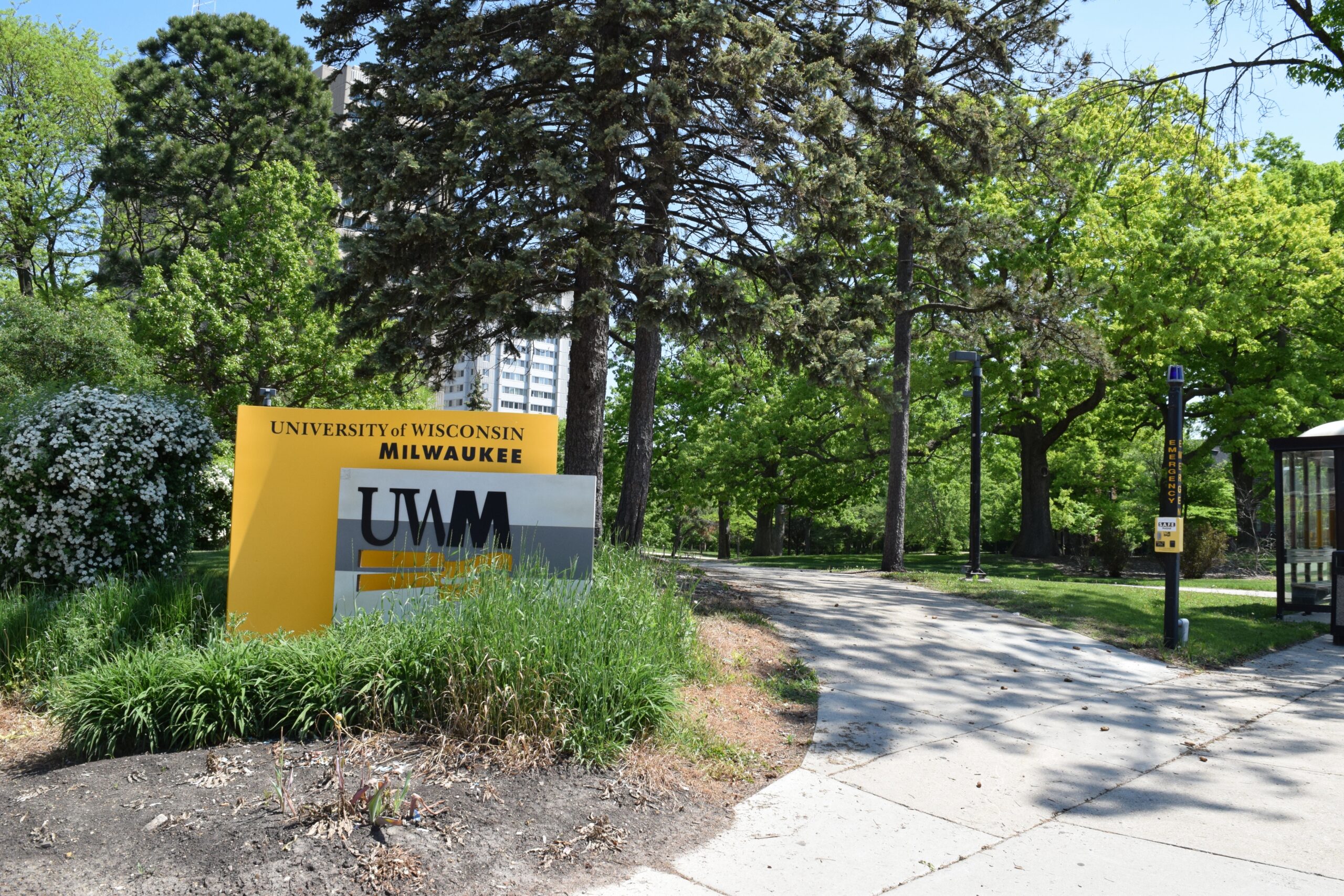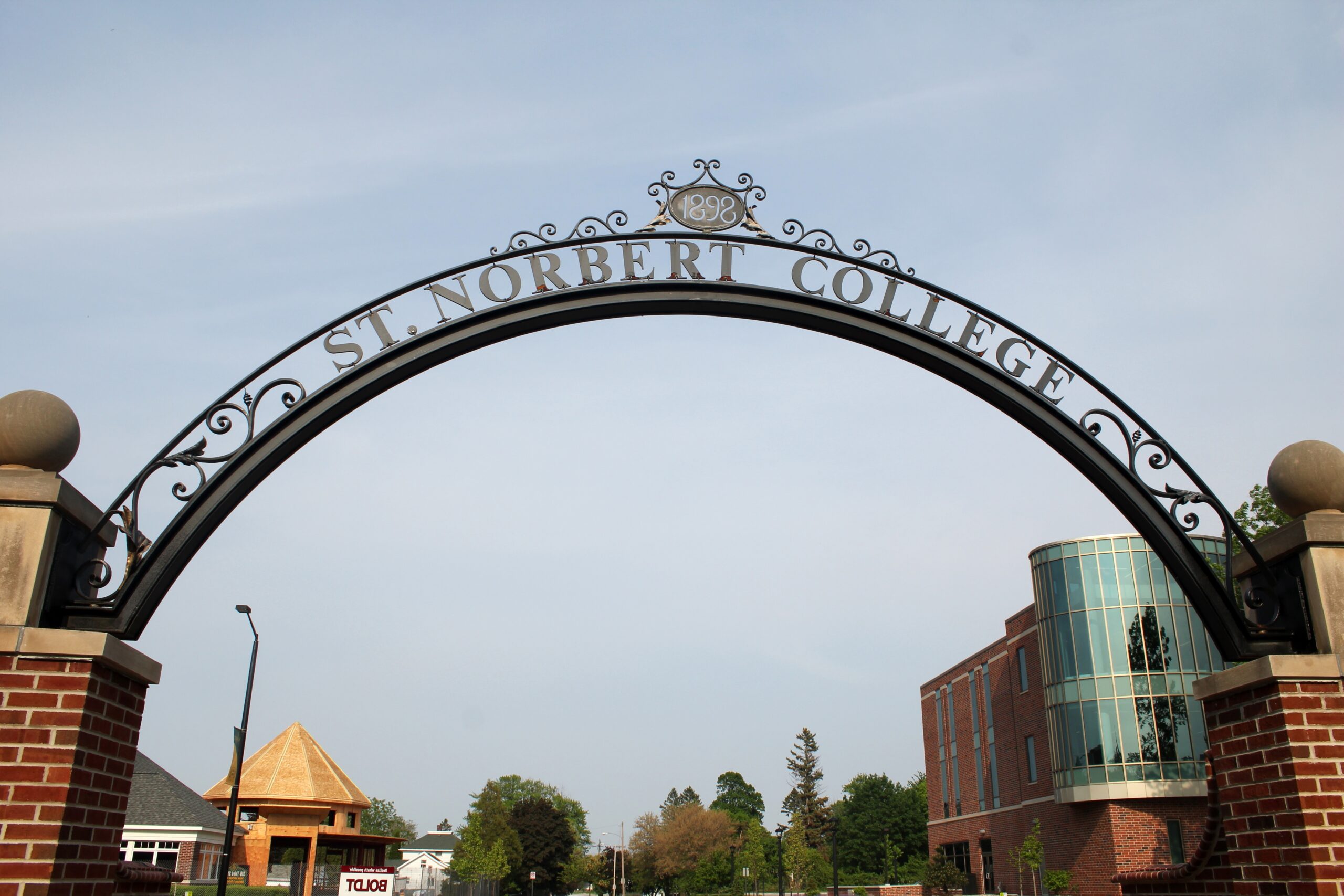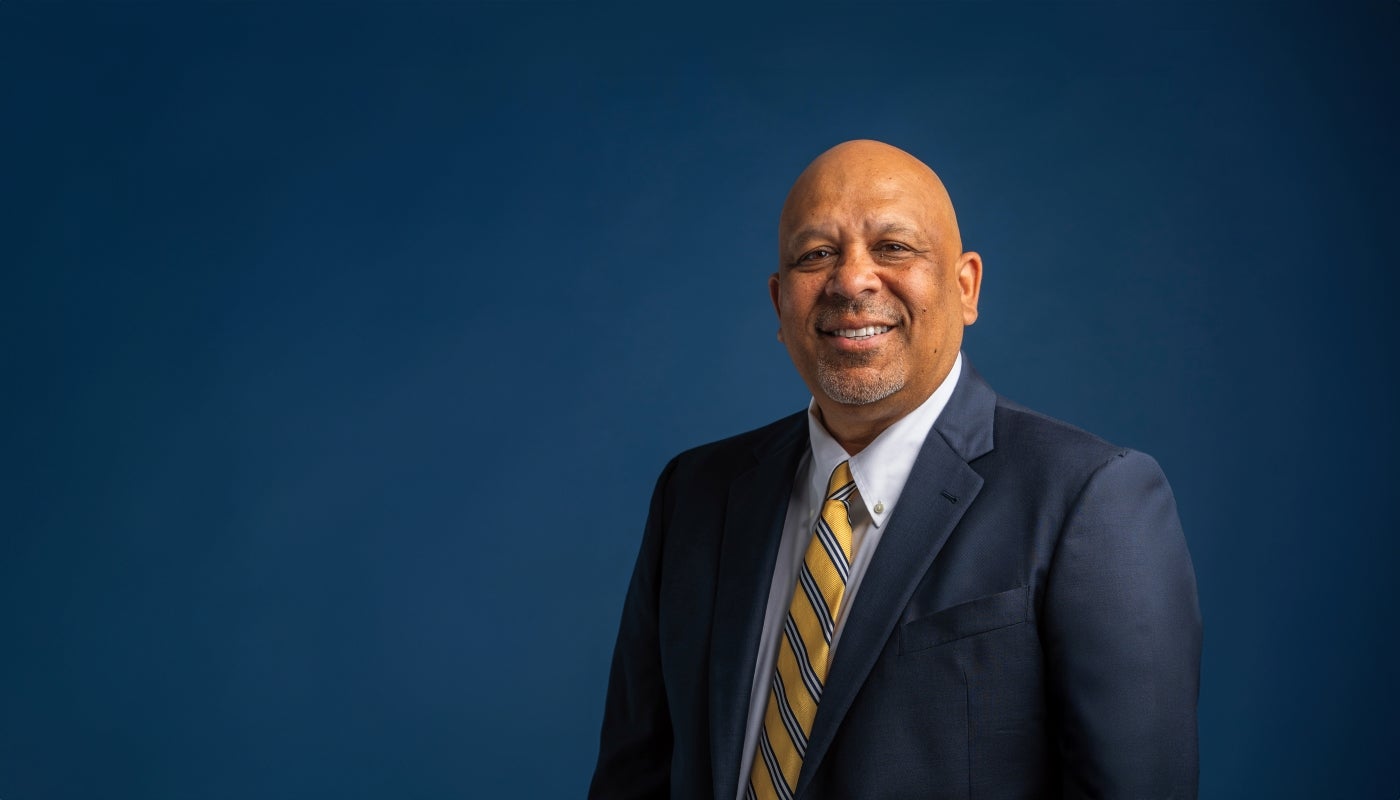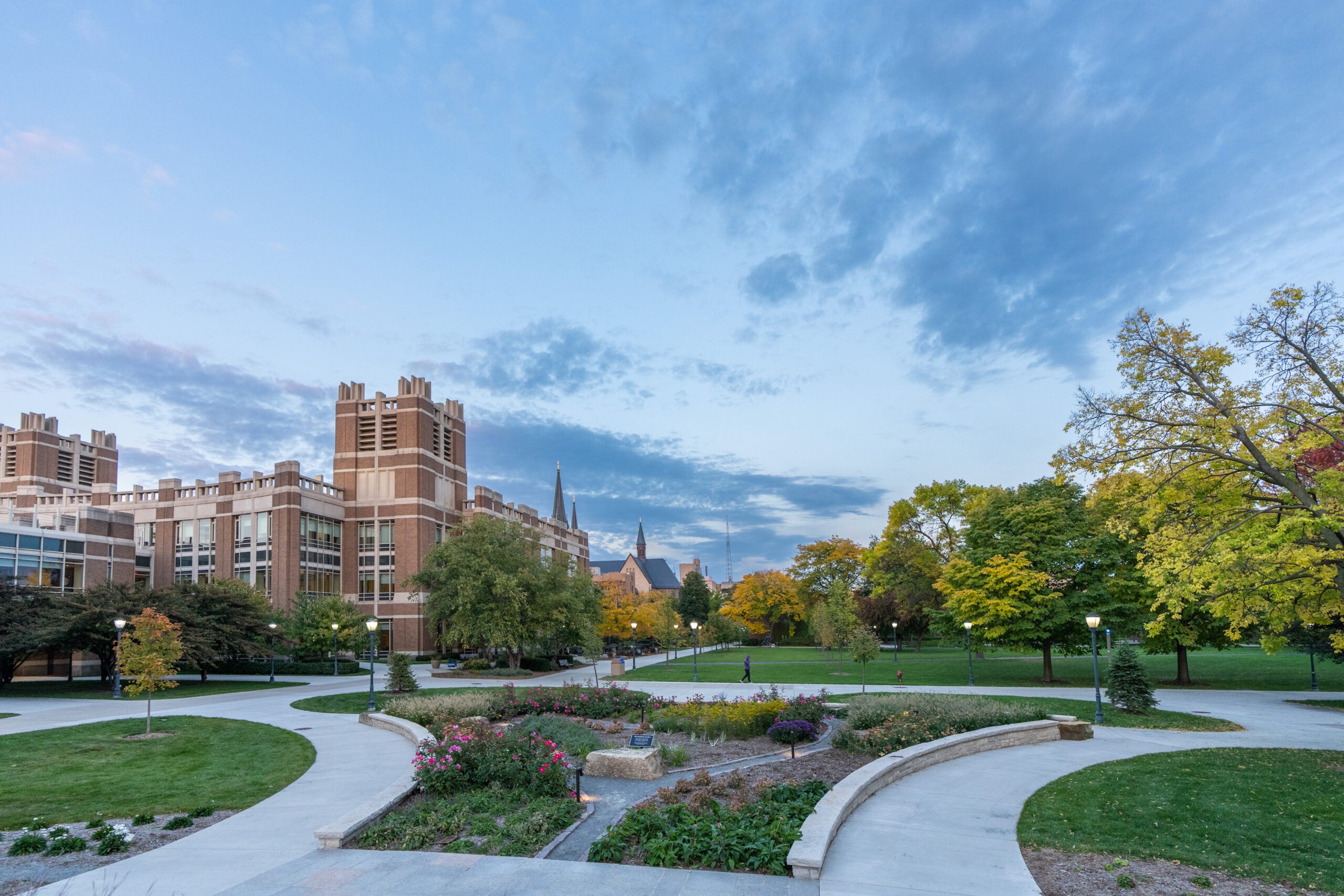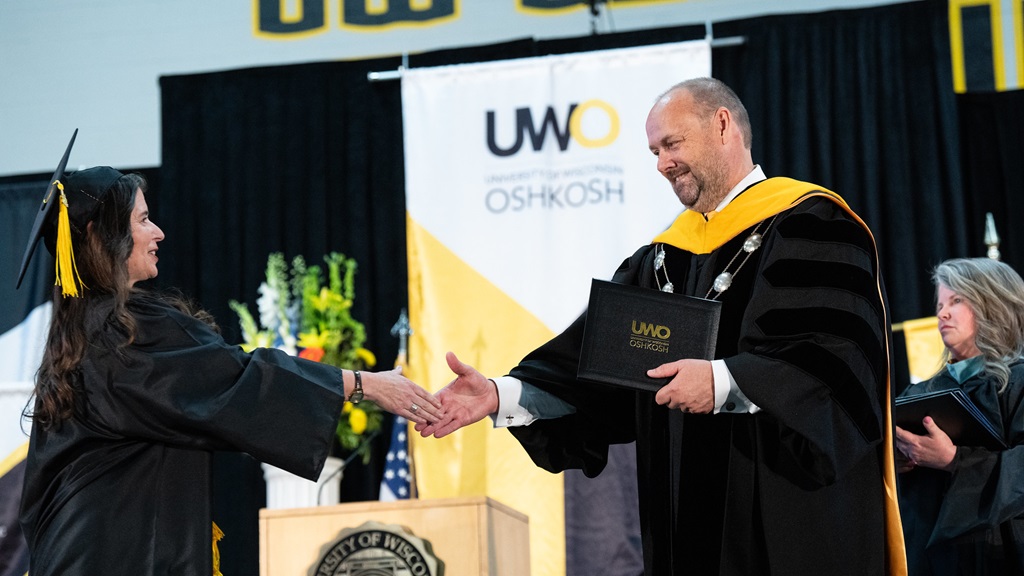Members of the Marquette University community officially launched an effort to unionize on Thursday.
The proposed bargaining units would represent undergraduate and graduate student workers, adjunct and non-tenure track faculty and university staff on campus. The drive comes just weeks after Marquette officials announced planned budget cuts. Union organizers said they are seeking fair contracts, wages and benefits.
The group, United Campus Workers of Wisconsin, would be the Communications Workers of America’s newest chapter of the United Campus Workers. A previous attempt to unionize failed.
Stay informed on the latest news
Sign up for WPR’s email newsletter.
Grant Gosizk, teaching assistant professor in the English department on the non-tenure track, spoke at an event Thursday outside of Zilber Hall.
He said participating faculty members have “precarious” contracts, inadequate salaries, promotion structure and professional development.
“Our administration has failed to meaningfully address these issues. We will. Our union will,” Gosizk said.
Chris Gooding, a teacher in the theology department on the non-tenure track, said he is paid two-thirds of what his tenure track colleagues make and he has a bigger workload. To him, a fair contract means pay equity.
“There needs to be push back,” Gooding said.
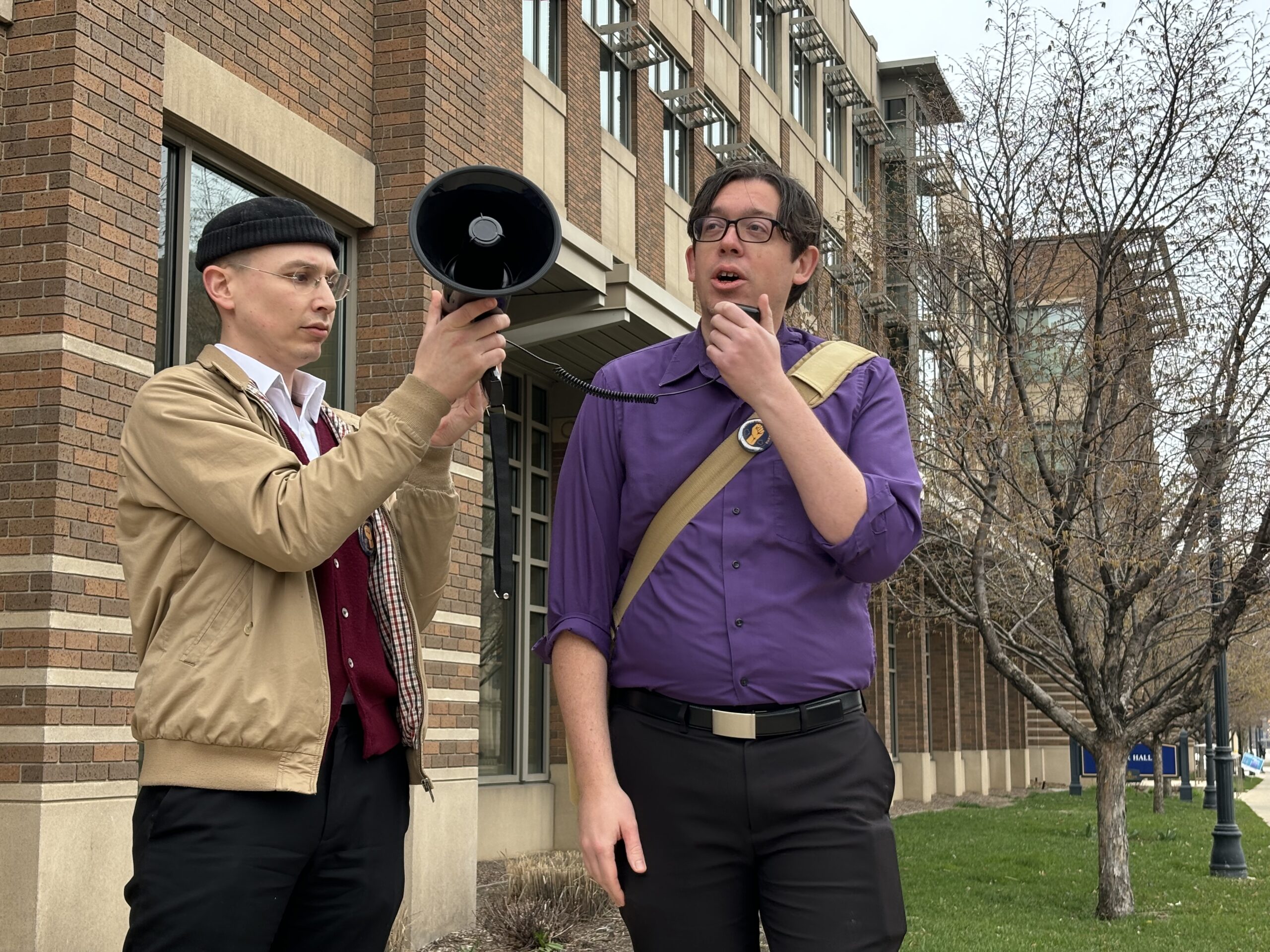
Those in favor of unionizing are advocating for better health care coverage and increased stipends for graduate and international student workers.
Josh Seidman, PhD student worker, said he also wants better pay for teaching assistants and resident assistants.
“If we weren’t here, the university wouldn’t be able to operate and they’re depending on us being able to do so at an under compensated rate through the stipends,” Seidman said.
Plans to cut the annual operating budget
The local union launch comes three weeks after the university announced plans to cut the annual operating budget by $31 million over by fiscal year 2031.
In an open letter to the campus community, more than 130 faculty members said the financial crises are the result of mismanagement by Marquette leadership.
“Faculty do the teaching, research, and service that make a Marquette education possible. Yet in the past decade, repeated financial crises have threatened our ability to fulfill our core educational mission,” the letter stated.
Ralph Weber, Marquette’s acting general counsel, is a co-leading the budget reduction effort.
“We need to make some thoughtful and difficult decisions about how to secure a future,” Weber said.
Marquette is not alone in planning budget cuts.
Northland College in Ashland recently declared a financial emergency and announced it may close after this school year. Cardinal Stritch University in Milwaukee closed last year. And Concordia University in suburban Milwaukee announced layoffs this month.
Wisconsin’s public universities are also struggling with budget deficits, responding with layoffs, campus closures and other cutbacks.
Weber said Marquette is in a strong financial situation compared to peer institutions which the most recent University Faculty Committee for Budgets and Financial Planning report confirmed.
“One of the things strong institutions do is that they recognize what’s coming down the road, and they take steps to ensure our long-term financial strength,” Weber said.
He said it is too early to say whether salaries will be affected. But he said roughly 60 percent of the institution’s budget comes from salary and benefits. He said he welcomes feedback from the campus community.
Gooding said the school is prioritizing capital projects over faculty wages.
“It really incenses us that we’ve been we’ve been working our butts off to be the best instructors that we possibly can be,” Gooding said. “We’re being told by people that we might potentially lose our jobs because of a mistake that somebody else made in fundraising,”
Weber said capital projects are necessary for the strength of the university, especially in new student recruitment and retention. He said the university must meet students’ needs for mental health support, which is being done by building a new health and wellness center.
“We’re developing this facility so that students come here and achieve success, not just academically, but personally,” Weber said.
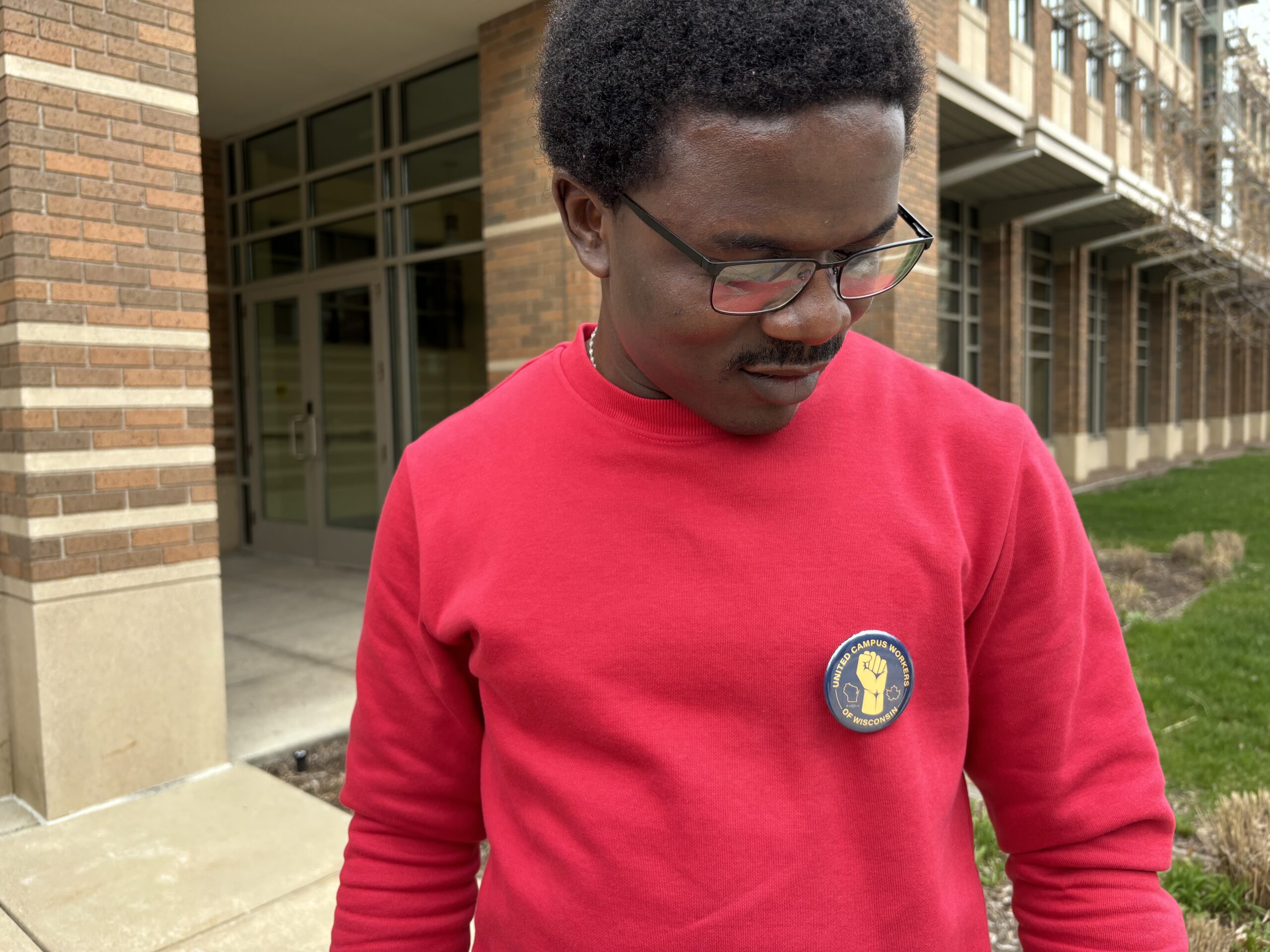
Marquette University’s chapter of the American Association of University Professors Chapter supports the union. A statement issued by the advocacy group, signed by 85 people, said the university always finds funds for buildings yet it rarely finds funds for faculty and staff.
The statement said tenure track faculty are increasingly being replaced with non-tenure track and adjunct faculty resulting in “shamefully” low wages and short-term contracts.
“All university workers deserve fair wages, contracts, and benefits. Indeed, the future of the university — and of our students — depends on it,” the statement said.
Next steps
Wisconsin has seen an uptick in union activity in recent years including strikes, protests and efforts by workers to form new unions. The U.S. Bureau of Labor Statistics estimates the number of union members in the state increased slightly from 187,000 in 2022 to 204,000 last year.
Organizers with United Campus Workers of Wisconsin must gain more support across campus before taking the effort to a vote.
“It’s time for us to put an end to the manufactured exigencies that perennially threaten our livelihoods,” Gosizk said. “It’s time for the faculty, the staff, the student workers who make this university great, to have a determinant voice in the future of our university.”
Wisconsin Public Radio, © Copyright 2025, Board of Regents of the University of Wisconsin System and Wisconsin Educational Communications Board.
